#waiting for spring
Text
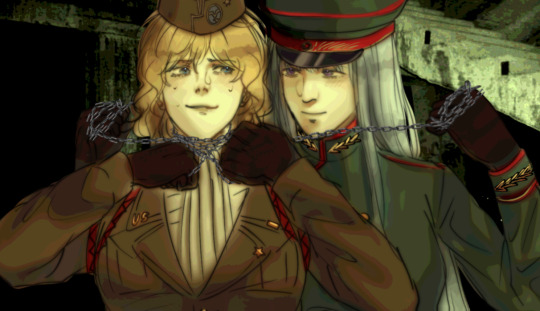
Toxic yuri.... Toxic yuri save me
#fanart#aph#aph fanart#hetalia#hws#hetalia axis powers#hetalia world stars#aph america#aph russia#axis powers ヘタリア#nyotalia#rusame#aph rusame#ivan braginsky#alfred f jones#amelia f jones#anya braginskaya#cold war#space gays#waiting for spring#hws america#hws russia#hws rusame#nyo amerus#nyo russia#nyo america
568 notes
·
View notes
Text

Waiting for Spring | Harumatsu Bokura - chapter 35
#waiting for spring#haru matsu bokura#monochrome#black and white#manga black and white#mangacap#manga edit#manga panel#manga#siixmanga#manga screencap#dailymanga#screencap
774 notes
·
View notes
Text

Morning Glory - German Woodlands - Jan. 2k24
#pws#lensblr#photographers on tumblr#original photography#moody#nikon#moody nature#moody photography#teamnikon#nature photography#waiting for spring#tired of winter#it’s so fucking cold#summerchild
108 notes
·
View notes
Text

Source: sandraserafia
ℍ𝐚𝓵l נ𝐀 𝔳คĻǤẸ
82 notes
·
View notes
Photo
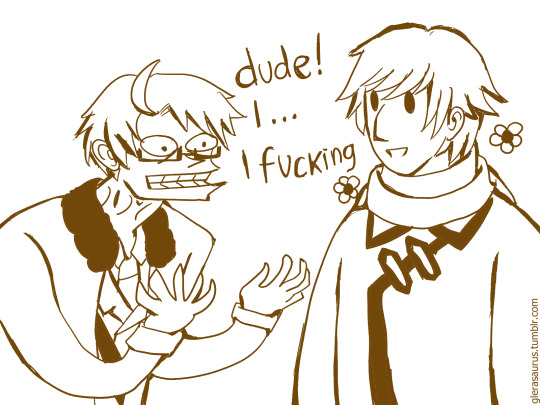


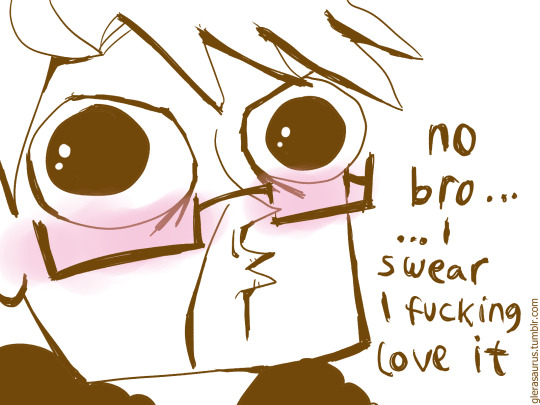
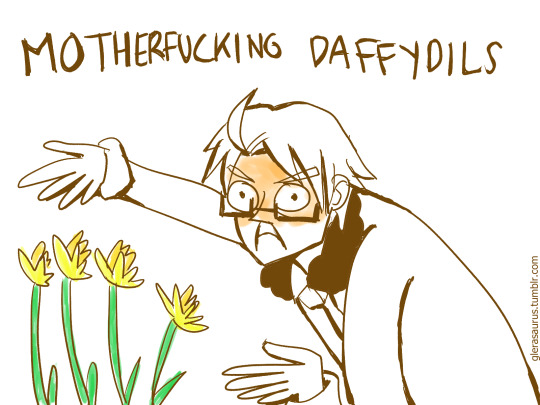
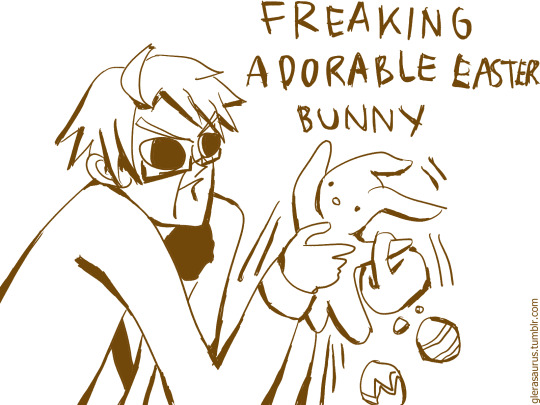
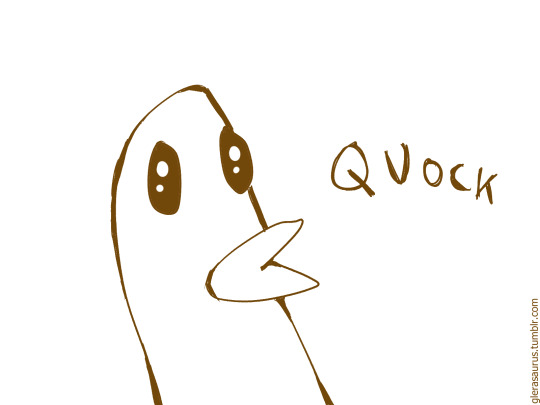


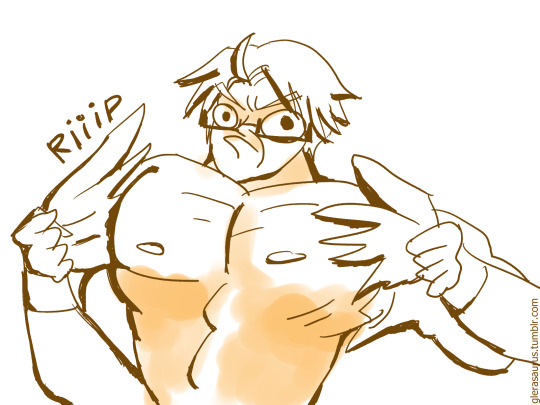

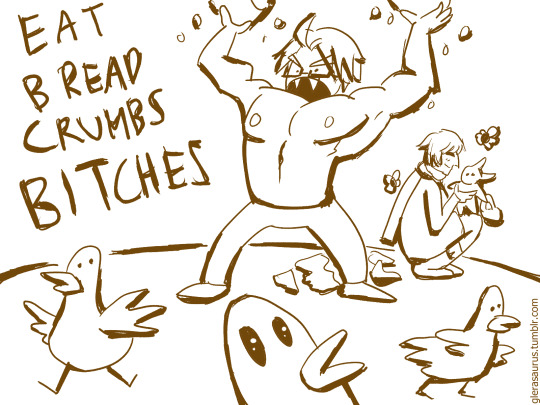
#hetalia#aph#rusame#aph russia#aph america#amerus#hws america#hws russia#i love spring#waiting for spring#true ra ar fan will get why spring for rusame#ivan braginsky#alfred f jones
231 notes
·
View notes
Text
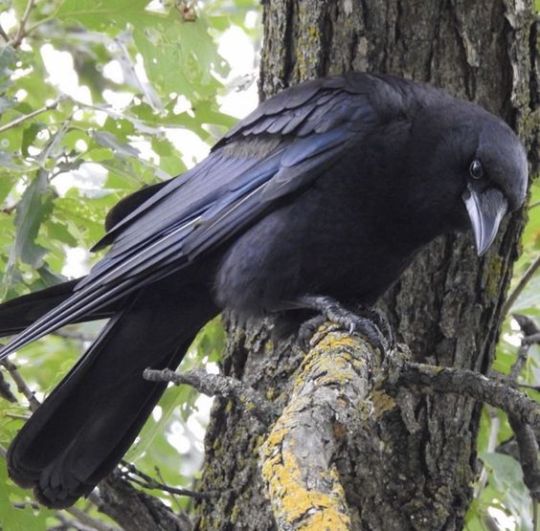
At North Mountain Park
on this March day
a tree,
still dulled by winter,
raises it raw-boned branches
and beckons to a crow.
For now, the crow will be
its only visitor.
preening and watching
and cawing as if to say…
this tree is about to transform
this tree is soon to be reborn
this tree is waiting for spring
and so am I.
by Perii Owen
42 notes
·
View notes
Text
how to watch baseball now: a primer
This is a long, hopefully-comprehensive guide on how to watch baseball for hockey fans feeling adrift during the offseason — I have constructed this from the perspective of not only how to understand what you’re watching, but how to make it interesting to yourself.
If the numbers aren't interesting to you, forget about the numbers! They don’t have to exist in your version of baseball. Make up your own rules and use them to watch the game. Watch games only for the one kind-of okay player you like. Pick your favourite team because of a video you saw of one of them bouncing a baseball off his ass (Sean Murphy, then of Oakland A's and now of Atlanta Braves). Baseball Olds will try to pretend like the game is this big thing that only people who already watch it can appreciate, but you just have to find what you love most about it.
I’m using the NHL as my best point of reference: in terms of growing the game, I’d say MLB suffers from a very different problem than NHL (other than like, the current uproar around letting queer people exist, which is a throughline in both), in that while the NHL has a very exciting product but can’t reach people where they’re at, baseball is by and large perceived as a boring, slow game and the league will bend over backwards to make polarizing changes to the Boringest and Slowest parts rather than capitalizing on what excites fans about the game. However, both leagues are plagued by Shitty Commissioner disease. Such is the way of life.
Feel free to read all of this, or none of it, but I’ve tried to split it up in a way that makes sense and is easy to navigate. Last note: many people will tell you baseball is the only major sport going on in North America at this time of year. This is false. The WNBA and NWSL are both in full swing—not to mention the World Cup next month. Supplement your baseball watching with a wide variety of sports where you can!
How to Love Baseball
Pick a Team, Any Team
The first step in becoming a baseball fan is obviously picking a team! I could probably give you NHL comparatives and let you figure it out from there, but I don’t personally think your favourite NHL teams have much bearing on your favourite MLB ones, so I’ll give you a quick and dirty rundown of my teams instead and how you might want to pick a team.
The easiest team for me to love is the Seattle Mariners because I live just across the border, and they aren’t good enough to be annoying but also not bad enough to be embarrassed about. They’re just kind of there, which I enjoy greatly. I also love the Philadelphia Phillies because they’re my friend’s favourite team. They went on a Cinderella run to the World Series last year (before losing to the Astros in the final) and are now solidly middling. My other favourites are the Washington Nationals because of their fantastic social media presence and their hilarious stadium traditions. The current-day Nats are very much the epitome of "how can we lose when we're so sincere?"
Some teams you might want to look into are the LA Angels (actually of Anaheim) for Shohei Ohtani, the Milwaukee Brewers for — at least from what I understand — their boyband energy similar to the New Jersey Devils, the Baltimore Orioles or Tampa Bay Rays for an exciting and winningest team, and the Oakland A's for a miserable fan experience including horribly dysfunctional team management and a coming relocation to Las Vegas.
The easiest team for me to hate is the Toronto Blue Jays, which is a result of their god complex re: being the only Canadian team. A funny thing from this season is that the Rays opened their season with a historic 13-game win streak, only to be killed 6-3 by the Blue Jays to end it. Something about Toronto teams and ending another team’s 13-game heater, or whatever.
Also look into any local teams if you can. In Vancouver, our local minor league team is the Vancouver Canadians, and setting up a little picnic on the grass with friends while watching a Canadians game is a summer staple. Here’s a very cute article about them. There are a variety of lower-level and exhibition teams across the world, especially in countries where baseball is incredibly popular. One exhibition team is the Internet-famous Savannah Bananas who are dearly loved on TikTok. If there isn’t a huge baseball foothold in your area, it’s worth looking into which MLB teams are most popular where you live and/or have the most coverage. Some analytics sites like FiveThirtyEight will occasionally create maps showing each team’s popularity in different states, countries, etc. and that can be a great guide.
Petty Rivalries 101
You can always just Google these, but I decided to just list off a few major ones for your perusal: the Yankees and Red Sox, the Rangers and Astros, the Dodgers and Giants, and the Orioles and Nationals. As Toronto Maple Leafs scholar Acting the Fulemin once put it, the point of sports is to be sad in a group, and the counterpart to this is that it absolutely rules getting to see a team you hate lose.
A quick note on the Yankees-Red Sox rivalry is that it's brought us one of my favourite ever quotes from ex-Mariner and current Yankee Nestor Cortes:

Once you’ve chosen a favourite team, they’re bound to have some kind of geographic or historic rivalry, and you can search those up to find out the background behind them. Also, I highly suggest deciding on a random team you hate for no reason. It makes the season experience much more interesting and gives you the chance to pray on their downfall whenever possible.
Where to Watch
As with most things about baseball, this will vary by your team. Depending on your cable package, you might be able to watch your favourite team already! That’s great news. Even if you can’t, feel free to turn on the TV, find a random baseball game, and imprint on either of those teams like a baby bird. The MLB website offers games broadcast with an MLB.tv subscription, but if you have an account you can also watch the Free Game of the Day and collected highlights from previous games! This is a great way to expand your team repertoire and figure out which team broadcasts you hate with a burning passion. Local radio stations do commentary on games if you like listening to that.
If you just want to get your feet wet rather than diving in straight away, pretty much every major game of the postseason will be uploaded by some “FirstName BunchOfNumbers” user on YouTube: for example, you can watch Game 1 of the World Series last year by just searching 2022 World Series Game 1 Full Game. However, watching the full game might be a slog if you don’t know what’s going on, and you can learn the intricacies of the sport without having to watch all four hours and twelve minutes of like, the 1962 World Series Game 7 (although that is a very exciting game). In that case, skip to the ‘How the Game is Governed’ section and read on.
All of this pertains to MLB teams, but there’s plenty to watch elsewhere. If you have a local baseball team, you might be able to catch a game or two in-person! Minor League Baseball also has their own broadcasting services and highlights are available on YouTube or their website.
League Structure
The MLB season is 162 games long. Spring training, aka the preseason, begins in February. During the regular season, teams play a three or four-game series with the same team before playing another with a different team. For example, this month the Philadelphia Phillies played 3 games in a row against the Washington Nationals on consecutive days. The day after the conclusion of their last game against Washington, they started a series against the Tigers, which was three games with one rescheduled due to weather, and then another three games against the Dodgers. This leads to a schedule that looks like this:
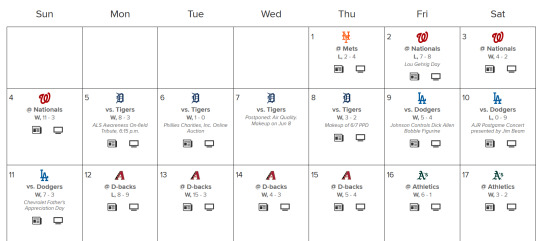
Occasionally, due to weather issues or other postponement reasons, a game will be rescheduled for the same day as another game against the same team — so they’ll play two full games in one day. This is called a double-header. They used to be routinely scheduled in MLB, but now they’re only played as a result of scheduling problems.
Team-wise, it’s a little more complicated than the NHL. Like the Eastern and Western conferences, MLB is separated into two ‘leagues’: the American League (AL) and the National League (NL). Both leagues have fifteen teams, and until the 1990s teams in different leagues didn’t play each other during the regular season at all, leading to different styles of play, tactics, and rules implemented between them. This is no longer the case! However, it’s important to recognize that unlike the NHL, NBA, NWSL, etc., Major League Baseball comprises two leagues, rather than two conferences of the same league. This matters because individual awards like the Cy Young or Gold Glove are given to the best players at their position in both the AL and NL, and the MLB MVP includes both an AL MVP and NL MVP.
MLB is made up of six divisions, with three in each league: AL East, AL Central, AL West, NL East, NL Central, and NL West. A division has five teams. If you know much about US geography, you might notice that the teams in each division don’t actually correspond very well to their geographic location: this is for a variety of reasons, not least of which is expansion teams requiring change in division partitioning, but nobody’s going to fix it at this point. And that’s okay!
Fandom and Things As Such
Baseball fandom, regrettably, is not much of a Tumblr phenomenon these days, but Baseball Twitter does have some incredible gems. The Baseball RPF tag on AO3 is also fairly fleshed out (albeit not to the extent of HRPF) and you’ll find that many authors who write HRPF have dabbled in baseball as well. If you’re lost on where to start choosing a team, going through the AO3 grab bag and choosing a random player who you really like in a fic is also a very respectable avenue.
I cannot stress this enough: the easiest way to learn the game without having to learn the characters is reading baseball AUs. That’s it. They’re ten times more approachable than trying to memorize everyone on your favourite team’s roster, and they abound in HRPF if you’re looking for a landing port. I have witness testimony from Lil (@wymgreenteam) that she learned what pitching signs and shortstops were from the wonderful Jack/Nico baseball AU. It works! Obviously fanfiction won’t teach you everything, but if you’re feeling overwhelmed they can be a fantastic first step and really illustrate the game from a fan perspective.
Other Media
I will caution against taking the ‘consume baseball-related media’ advice too seriously, because I find that unlike baseball AUs, other media involving baseball does not always come from someone who watches and loves the game. Think of it like hockey romance books—just like the main characters of those novels are probably not scoring hat tricks in 5 consecutive games, they probably aren’t reaching such baseball heights either.
With that said, I have not watched Daiya No Ace but I’ve heard that people do enjoy it! For genuine baseball culture-oriented media, Roger Angell wrote fantastic articles and books on the game. I love his book ‘Five Seasons: A Baseball Companion.’ Then there are movies like Moneyball and shows like A League of Our Own which tackle specific aspects of the game and how it’s played. Depending on your eventual favourite team(s), hometown coverage will also play a huge part: for the Phillies, that’s outlets like the Philadelphia Inquirer or Penn Live.
Narratives
Once upon a time there was a young man named Shohei Ohtani who was breaking records set in the 1920s while playing on a horrible, failing team that refused to build around him. I assume you have some familiarity with Ohtani, but he is very difficult to describe because he is literally making history. He is the only two-way player in MLB right now: a two-way player is someone who is both a pitcher and a batter; there are a ton of rules about what constitutes a two-way player, but currently Ohtani is the only true two-way player at the Major level. This is not a perfect analogy, but he’s sort of like if Jason Robertson went out there and had a 50-goal season, then immediately jumped into net and played like Juuse Saros. He’s the best all-around player in MLB, and even though he isn’t the best pitcher or the best batter, the fact that he’s incredible at both of them makes him stand out. He also plays with Mike Trout, who’s breaking records of his own, while trying to drag the LA Angels to any sort of notoriety. Here is a prescient article about the Ohtani-Trout era in Anaheim.
Each team has their own current narratives and pairings, but Ohtani and Trout are the biggest one right now. People compare them to McDavid and Draisaitl, but it’s more like if the Oilers had McDavid and Draisaitl but were also one of the worst teams in the league right now. However, Trout is currently in the worst slump of his career while the Angels have won the last 11 of 14 games, so really all this means is that baseball is fake.
Baseball is rife with redemption and villain arcs—you just have to dig a little to find them. I have presented the Ohtani and Trout trainwreck because it’s the closest comparable to the Oilers tragedy, but there are plenty others that really depend on team and current events.
Bush Leagues
MLB teams have a very different relationship to their minor-league affiliates than NHL teams do. There are about five hundred various regional minor leagues, but the MiLB levels are Rookie, Single A, High A, Double A, and Triple A, each of which has two or three individual leagues similar to the AL-NL system in MLB.
The fun thing about MiLB is that it’s a lot closer to home than MLB! Most places don’t have an MLB team, but there’s a good chance anywhere in the USA has a nearby MiLB or regional/collegiate league team. They also have way more interesting names, like the Portland Pickles, Rocket City Trash Pandas, and Sugar Land Space Cowboys. The prospect pipeline in MLB runs a whole lot slower than it does for the NHL, and generally through those Double or Triple-A affiliates, so it’s definitely worth paying attention to minor-league teams and their standout players to see who might be the next rookie on your favourite team.
MiLB player compensation has been an issue for a long time, and the players recently unionized! A few great write-ups on it: 1, 2, and 3.
Regional Popularity
I’ve said this plenty, but I truly do think that finding your baseball niche hinges upon imprinting on a hometown team or a player you just really like. This sport isn’t just an American pastime: it’s hugely popular in Central America and parts of East Asia, and some of the best and brightest up-and-coming (and current) players hail from countries that haven’t traditionally been viewed as bastions of baseball. The game is growing every day, and it’s wonderful to see.
Baseball is very popular in the Dominican Republic, Cuba, Puerto Rico, Japan, and Korea. Out of those, I’d probably say the Dominican Republic has the largest MLB presence, with only American players outnumbering Dominican ones in the league, but the sport is also fast-growing in Japan, Korea, and Australia. Japan won the 2023 World Baseball Classic, which is the baseball equivalent of the World Cup of Hockey, where the best players in the world compete against each other and Shohei Ohtani (captain of the Japanese team) pitched to Mike Trout (captain of the American team) in possibly the most electric moment of baseball in the 21st century.
How to Understand Baseball
How the Game is Governed
Rather than doing a big writeup on this, I figured I would just find some articles and videos that go through the rules well and hold your hand through it! Think of these like helpful assets, similar to the first time you search up ‘what is goaltender interference’ or 'what is offsides' after hearing it mentioned on the play-by-play and a goal got turned over and all the fans were mad and you wanted to be in on the reason why. This is that search.
Baseball Explained in 5 Minutes
How to identify baseball pitches
Everything there is to know about the The Strike Zone in Baseball.
Intro to Baseball: Positions
What’s going on with the DH in MLB? (MLB Originals)
Rules Glossary | MLB - PDF Version
Lastly, once you’ve got a good grasp on the rules and positions, I probably wouldn’t go straight to watching a full game—you want to make sure you’re using your three hours well rather than staring at a game you don’t really get or don’t care about, or both. Instead, watch YouTube highlights of various players and best (or worst) plays of the week! This gives you an idea of what creates excitement in a game and why, and different positional strengths. From there, you can start watching longer clips, like full innings or the highlights uploaded after each game, which give you a better idea of the game’s pace.
Pressing Play
While I was writing this I remembered that a fun and unique baseball tradition is players having walk-up songs when they’re up in the batting lineup.
Most teams will post their players' walk-up songs on Spotify, YouTube, etc. and while there are a few songs that are synonymous with legendary players - like Mariano Rivera's "Enter Sandman" - players usually like to switch up their songs. Often, a song will become emblematic of an era in that team's history (Anthony Rizzo's "Intoxicated" and the Cubs' 2016 playoff run). After a while, you'll notice patterns in what players pick.
Learning about each player’s song rotation can be extremely revealing, like Mark Canha switching his walk-up songs to Born This Way, Vogue, and I Wanna Dance with Somebody in honour of the Mets Pride Night last week!
Diamond Sports Bankruptcy
I’m not going to pretend to know anything about broadcasting or RSNs, but Diamond Sports, the group that runs Bally Sports, recently filed for bankruptcy, which has really affected some franchises’ profit margins and where their games can be streamed. Not sure if this interests you, but you can read about it here!
The Oakland A’s Relocation
Again: I’m not an Oakland fan, but there’s a lot of debate right now about the owners of the Oakland Athletics moving the team to Vegas despite the wishes of the town and city. Rob Manfred, the MLB commissioner, also made rude comments about Oakland fans as a result of their Reverse Boycott Night, where almost 28,000 fans came out to support the team. A professional sports league commissioner acting like an asshole to fans of a small-market team is nothing new, but it’s the culmination of a lot of drama between terrible owners and a market that loves their team.
The Long, Storied History of Cheating
The long, storied history of cheating in MLB encompasses not only stealing signs and tipping pitches, but also foreign substance usage on hands (which pitchers sometimes try in order to change how they pitch the ball), illegal equipment, and more. It’s kind of a lot. The most notable, recent case is the 2017 Houston Astros World Series Win.
Houston’s Fucking Astros
Nobody likes the Astros except Astros fans. They won the World Series last year and are universally hated, not least of all because of the 2017 cheating controversy.
In baseball, ‘signs’ are what catchers use to communicate to pitchers what kind of pitch they should throw. These rely on knowledge of the hitter currently on the plate and catching them by surprise. Each pitcher-catcher battery will usually have their own signs. In 2017, a year in which Houston won the World Series, the team set up a video camera in the center field seats with a full frontal view of the catcher, and they would use that to figure out what pitches the pitcher would throw. Then from the dugout, whoever was watching the video feed at the time would use a signal (audio cues, like banging garbage can lids) to tell the hitter who was up what pitch they had to expect. This was mostly possible because of the time delay between a catcher signalling and a pitcher throwing, which has been changed by this season’s pitch clock implementation.
In 2020, The Athletic published the first exposé article about the Astros cheating scandal, and it rocked the baseball world. Several immediate consequences followed: the Astros GM and field manager (head coach) were suspended for the full 2020 season, and although players received no punishment, the team gave up four draft picks (their 1st and 2nd round picks in 2020 and 2021).
Pitching and Sticky Stuff
Pitchers applying foreign substances on their hands is always a controversy in MLB games. Recently, star pitcher Max Scherzer was ejected and suspended 10 games after an umpire decided his hand was unusually sticky. TLDR: cheating is common, and consequences vary. Nobody has gotten over the Astros cheating scandal.
Expected By Whom
A quick rundown on the analytics side of the game and how baseball stats look very different both in their progress and insights than hockey. This is how you can sound like you know ball.
The Moneyball book does a great job explaining the rise of sabermetrics (baseball analytics) in the early 2000s, starting with Billy Beane and the Oakland A’s. Because MLB doesn’t have a salary cap and their luxury tax isn’t difficult for big-market teams to pay, small-market teams like Oakland have to constantly innovate in their game tactics in order to stay competitive, and that’s why the game today is so numbers-oriented. Watching a baseball game, you’ll see far more stats than you would in an NHL broadcast: OBP (On-Base Percentage), ERA (Earned Run Average), pitching speed, slugging percentage, pythagorean win percentage, and more. Do not fear the big numbers. You don’t have to know what every stat means in order to love the game, but if you watch enough and you hear commentators discussing what, say, Kodai Senga's ERA is, you’ll come to learn what they mean! In a pinch, you can also easily just search up ‘league average [stat]’ to figure out what the standard is.
Some websites that are really instrumental in baseball analytics are Baseball-Reference, FiveThirtyEight, and FanGraphs, plus YouTube channels like Foolish Baseball and statisticians like Bill James and Tom Tango. Baseball is a lot further along in its analytics revolution than hockey, and as a result, such analysis is not just a thing for Stats Nerds but also a huge part of the way the game is played and watched today. Personally, I love stats that assess umpire accuracy in calling strikes, and so Umpire Scorecards on Twitter is one of my favourites.
It's Too Long and Too Much Money
If Connor McDavid played in Major League Baseball and was close to the kind of player he is in the NHL right now, he would be getting paid north of 400 million dollars, not to mention endorsement money. Instead, he sold his soul to a sport where reporters ask about his biological clock and his only consolation for living in Edmonton is his heated driveway.
Because MLB payrolls are so much larger than the NHL’s and they have a luxury tax rather than a salary cap, contracts are worth much more. The sport itself is less volatile as well: both a product of the longer season (larger sample size) and the luck factor inherent in chance-based games like hockey that isn’t present as much in baseball, a player's year-to-year performance is easier to predict and therefore teams feel more comfortable betting on their production. In contrast to the NHL’s 8-year limit & penalty for long contracts (like the Kovalchuk deal), and bridge deals made when a player hasn't demonstrated that their performance is sustainable, MLB GMs often give their stars contracts over 10 years, and for hundreds of millions of dollars total. Mike Trout is on a 12-year contract for almost $430 million, and by several estimates, his endorsements and the money he receives for being named All-Star, AL MVP, etc. brings that up significantly.
MLB front office terminology is very similar to the NHL, but their contracts differ in another important way: baseball players can opt out of a contract and enter free agency. For example, last season Carlos Correa agreed to a 12-year, $310m deal with the New York Mets, but the Mets were worried about the results from his physical and his injury history, so they pulled out of the deal before the season began and instead, Correa signed with the Minnesota Twins on a six-year, $200m contract.
The Used Boy Auction
Drafting in MLB works very differently than the NHL. The amateur draft (the Main one, which is also called the Rule 4 Draft) takes place mid-season and lasts 20 rounds (used to be 40), plus picks that teams are given as compensation for other events. Teams can draft players either out of high school or college baseball—while the majority of players in the early days were picked right out of high school, nowadays the largest percentage are collegiate players. High school players are only eligible after graduation, and they don’t have junior leagues like the OHL or USHL. Players at universities can only be drafted after their 3rd season there in order to avoid going to a university only for drafting purposes.
Teams retain the rights to sign the players they draft until July 15 of the following year, and a player who does not sign with their team is eligible to be signed once again as long as they meet the age and educational requirements (attending an academic institution, three years of college, etc.) Unless the player has consented to be re-selected by their old team, they cannot be chosen again in another draft year. This leads to players like Brandon Belt having been drafted three times, by the Red Sox, Braves, and Giants, and ultimately playing for the Giants after his college career.
The Rule 5 Draft is another major part of the MLB drafting system. It's sort of similar to what happens in the NHL with an expansion draft, but it takes place in the winter every year. As the MLB prospect pipeline moves slower and it's easy for teams to Stockpile high-quality prospects and bury them in the minors due to the team's current success, this draft aims to ensure that young players have a chance to play in the bigs on a team that needs more manpower. Not every team has to select a player in the Rule 5 draft; last season, 15 players were taken, including the Nats selecting Thad Ward and the Phillies selecting Noah Song.
Here's the official MLB description of the drafting process:

Podcasters or Whatever
My most toxic trait is that I unfortunately love listening to sports podcasts, so here are some good baseball ones:
The Athletic Baseball Show
Ballpark Dimensions
Effectively Wild
The Strike Zone
I hope this serves as a useful first step! Feel free to reach out to me if you have any questions or want to yell about baseball - I wrote this for two people, so if either of those two people find it helpful, the three hours I spent on it will have been worth it.
141 notes
·
View notes
Text
Another busy week. It’s been well here; had jury duty Monday - I wasn’t picked and thank goodness for that, it was 7 counts of sexual assault against a minor - I DID NOT need that in my brain. Then Tuesday and Wednesday I was part of a professional development training team for introducing Biopsychosocial involvement in chronic pain. It was really amazing.
Dad seems to be doing some better. We had a couple weird moments, where he came down to dinner and told the kids that my mom’s spirit is still at the house and knocking things over, making noise. On the surface, no issues with that belief. That’s your experience. Clearing that up with my 5 & 9 y/o, not so much. It’s hard, those conversations. All in all though, he’s talking, feeling, which, in all honesty, is part of the damn healing process. You have to feel, to deal, to heal. I told him how proud I am of him, because it’s just shit, and the worst thing to happen to him in his life. That shit is heavy and has to feel impossible.
Headed to Thai with friends. Then apparently we are going to a field where we will be looking for Saturn through a telescope.
Saturn 🤘
24 notes
·
View notes
Text
Waiting for spring to knock at my door…
.
.
#hope dies last#waiting for spring#I know it will come#have hope#soulinkpoetry#poetry#we’ll be okay#thoughts#she writes#feelings#poets on tumblr#poets corner#writers and poets
18 notes
·
View notes
Text

𝐖𝐚𝐢𝐭𝐢𝐧𝐠 𝐟𝐨𝐫 🌸🍃𝐒𝐩𝐫𝐢𝐧𝐠
https://www.pinterest.com.
18 notes
·
View notes
Text
Take those flowers, You DESERVE them.

Feelings that I had to release from me…
I wanted to cry… and somehow out of nowhere he appeared, with a bouquet of fresh hyacinths, standing and smiling.
"Take it, it's for you." He told me.
I wanted to hug him.. but then I remembered that he is only in my imagination.. 🥺😭
My beloved Hyacinth.. 🪻
#minister of spring#disney fairies#disney#pixie hollow#hyacinth#fantasy#fanart#i love him#my crush#he is so cute#my therapy#my art#digital art#art#tinkerbell#seasonal ministers#my feelings#flowers#spring#waiting for spring#hope
11 notes
·
View notes
Text

Cringetober Day 15: Song Lyrics
I used "Moon Waltz" by Cojum Dip. I swear it's so space gays you guys,,
More versions below

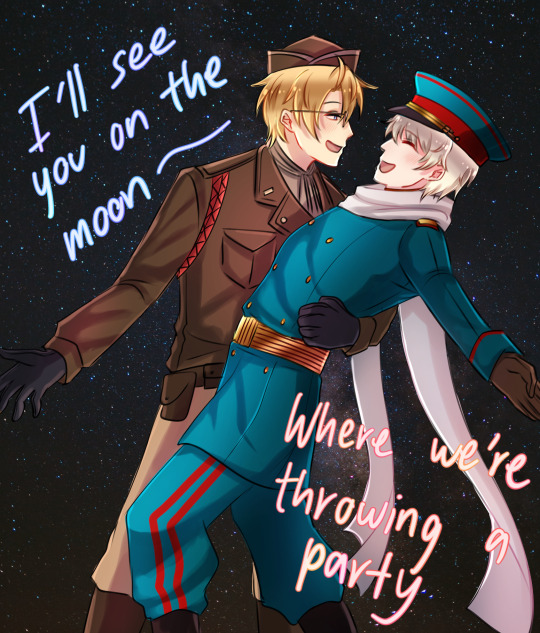
#aph#aph fanart#fanart#hetalia#aph america#aph russia#aph rusame#rusame#hws russia#hws america#hws#ヘタリア#aph amerus#amerus#cringetober#cold war#space gays#waiting for spring
96 notes
·
View notes
Text
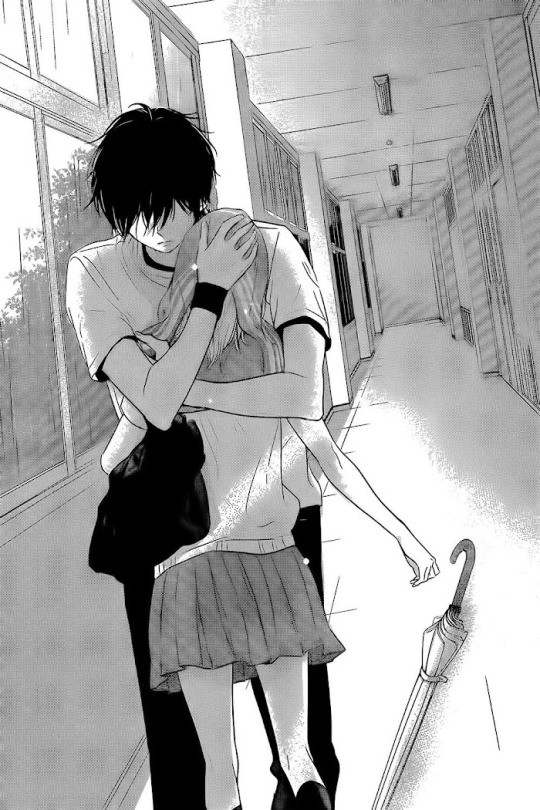
Waiting for Spring | Harumatsu Bokura - chapter 14
#waiting for spring#dailymanga#manga panel#mangacap#monochrome#manga edit#mangaedit#manga black and white#black and white#b&w#shoujo manga#shoujo#siixmanga#screencap#mangacore#manga cap#manga#manga and stuff#manga aesthetic#manga screencap#haru matsu bokura
609 notes
·
View notes
Text

Feels like Spring today ☀️
14 notes
·
View notes
Text

Source: lobsterandswan - A shard of sun through the thick dark rain clouds, leaves on the wall and a happy warm place to wash dishes. I’ll be grateful for every glimmer from now until March.
ℍ𝐚𝓵l נ𝐀 𝔳คĻǤẸ
97 notes
·
View notes
Text

-Extracted from #1 Waiting for summer, Evelyn’s Substack
#summer#summer rain#quotes#poetry#poem#love poem#on flowers#spring#counting petals#persephone#aesthetic#light academia#spilled thoughts#spilled quotes#web weaving#nature appreciation#waiting for spring#waiting for autumn#waiting for fall#literature#writerslife#writers on tumblr
28 notes
·
View notes